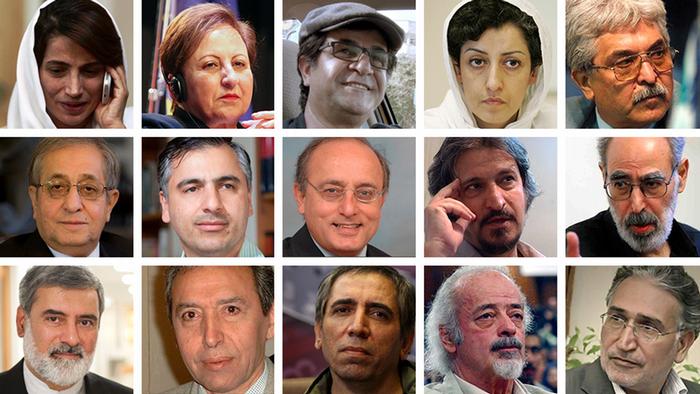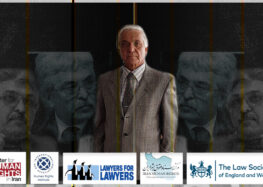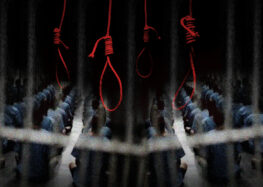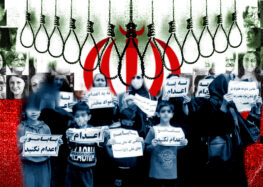15 Prominent Iranians Call For a Referendum on the Islamic Republic
 “The state has become the main obstacle to the progress and liberation of the Iranian nation”
“The state has become the main obstacle to the progress and liberation of the Iranian nation”
Fifteen prominent Iranians including lawyers, directors and academics, have followed up on a recent speech by President Hassan Rouhani and issued a statement demanding a referendum to determine the country’s political future.
“In accordance with the rights of nations to self-determination, we call for a referendum under the auspices of the United Nations to determine the type of state so that the people of Iran can take control of their fate by choosing their desired kind of state and act effectively and in unison to eliminate present crises,” they said.
Addressing the Iranian nation at Tehran’s Azadi Square on the 39th anniversary of the Islamic Revolution, President Rouhani pointed to the Constitution as the “standard” for ending national disputes and said, “If there’s an argument between us, we should refer to Article 59 of the Constitution. There’s no need to fight and shout slogans. Let’s use our constitutional potentials and act on whatever people say through the ballot box.”
Article 59 states, “In extremely important economic, political, social, and cultural matters, the function of the legislature may be exercised through direct recourse to popular vote through a referendum. Any request for such direct recourse to public opinion must be approved by two-thirds of members of the [Parliament].”
The day after Rouhani’s speech, a group of well-known Iranians called for a referendum to determine whether the Iranian people want the country’s current theocratic government.
“The state has become the main obstacle to the progress and liberation of the Iranian nation by abusing and hiding behind religious concepts, resorting to lies, deceit and secrecy, ignoring public opinion, breaking the rule of law and human rights principles, fundamental violations of freedom and the rights of citizens, total impotence in resolving political, economic, social and cultural crises and blocking all lawful means of oversight and peaceful reform,” said the statement.
The statement was signed by prominent Iranians based inside and outside of the country including Nobel Peace Prize Laureate Shirin Ebadi (based in London), human rights advocate Narges Mohammadi (imprisoned in Evin Prison in Tehran); human rights lawyers Nasrin Sotoudeh and Mohammad Seifzadeh (both based in Tehran) and Payam Akhavan (based in Toronto). The other signatories are film directors Jafar Panahi (based in Tehran), Mohsen Makhmalbaf (based in Paris) and Mohammad Nourizad (based in Tehran), author Kazem Kardavani (based in Germany) and politicians Hassan Shariatmadari (based in the US), Mohammad Maleki (based in Tehran), Abolfazl Ghadyani (based in Tehran) and Heshmatollah Tabarzadi (based in Tehran). Political analyst Mohsen Sazgara (based in Washington, DC) and Professor of Islamic Studies Mohsen Kadivar (based in the US) also signed the statement.
“In the opinion of those who signed this statement, the path toward eliminating these fundamental problems is the peaceful transition from an Islamic Republic to a secular, parliamentary democracy on the basis of the people’s free will, complete respect for human rights and an end to all fundamental discriminations, especially absolute equality for women, ethnicities, religions and faiths in all cultural, social, political and economic sectors.”
The statement also pointed out, “In these 40 years [since the 1979 revolution], there has been no let-up in people’s suffering and instead they have been grappling will numerous crises and hardships while being encouraged to demonstrate piety in a double life. Because of their ignorance, incompetence and institutional corruption, the authorities are incapable of solving the daily ordinary problems in society. Discrimination, corruption, and astronomical embezzlements are wreaking havoc. Many laws are fundamentally unjust, discriminatory and promote violence. Instead of implementing justice and existing defective laws, the judicial branch has become a tool for rulers to carry out their political aims.”
Calls for a referendum in Iran first emerged in the late 1990s after the Islamic Republic’s first reformist government under President Mohammad Khatami (1997-2005) failed to implement moderate policies in the face of resistance by the powerful conservative establishment.
Since then, the slogans of “referendum, referendum, this is the people’s slogan,” “death to dictatorship,” “bread, work and freedom” and “reformists, conservatives; you’re finished” have been shouted in street demonstrations in Iran by supporters of a secular democracy as well as proponents of the return to monarchial rule.
But when people were given a choice shortly after the revolution, they chose the Islamic Republic. On April 1, 1979, two months after the revolution, the country’s first referendum offered a choice between an untested Islamic Republic and the disgraced overthrown monarchy and the Iranian people overwhelmingly voted in favor of the former.
The statement by the 15 prominent Iranians carries a strong risk that the signatories who live inside the country could face serious consequences, including long prison terms.
While their brave, unified stand has been widely lauded by Iranians on social media, some people also disagreed with their point of view.
“This unified voice among such a mix is unprecedented,” tweeted reformist political analyst Mohammad Javad Akbarin on February 12, 2018. “From Narges Mohammadi and Abolfazl Ghadyani to Mohsen Kadivar and Jafar Panahi and 11 other cultural and political personalities inside and abroad [they] have jointly written that 40 years of experience with the Islamic Republic has shown that it cannot be reformed and demanded a referendum under UN supervision.”
But reformist human rights activist Hassan Zeidabadi tweeted on February 12, “Why aren’t we paying attention? A referendum to change the state is the outcome of the political crisis, not a way to solve it.”
Some criticized the signatories for failing to point out the potential dangers of a referendum.
Writer and sociologist Amin Bozorgian also tweeted: “You need a revolution to change a state. That means first the people will want change, then they will occupy government bodies, they will initiate civil disobedience from inside the state and then in the political vacuum a referendum will make sense. A referendum is not the cause but the result of a revolution and the change of state. We want the political state to change from the comfort of our home, sitting behind a computer, without violence. This is nothing but an illusion. These statements only show their authors’ desperation.”






